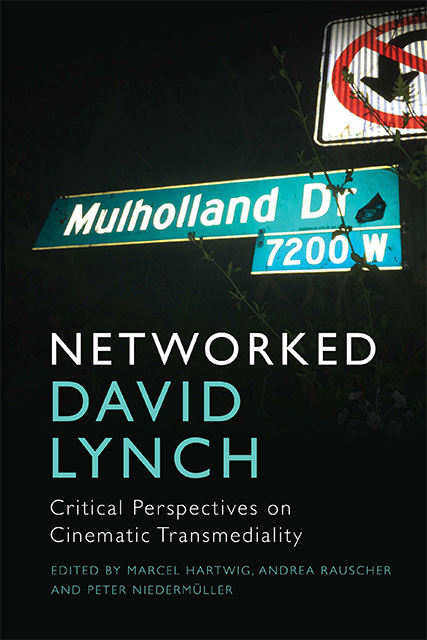Book contents
- Frontmatter
- Contents
- List of Figures
- Notes on Contributors
- Introduction: Entering Lynchtown
- Part I Approaching Intertexts
- Part II Twin Peaks as Transmedia Network
- Part III David Lynch's Transmedia Aesthetics
- Part IV Videographic Criticism of David Lynch’s Cinematic Work
- Conclusion: Leaving Lynchtown
- Index
Chapter 8 - The World Spins: Transmedia Detours and Cinematic Configurations around Twin Peaks
Published online by Cambridge University Press: 19 October 2023
- Frontmatter
- Contents
- List of Figures
- Notes on Contributors
- Introduction: Entering Lynchtown
- Part I Approaching Intertexts
- Part II Twin Peaks as Transmedia Network
- Part III David Lynch's Transmedia Aesthetics
- Part IV Videographic Criticism of David Lynch’s Cinematic Work
- Conclusion: Leaving Lynchtown
- Index
Summary
An inspiring starting point for speculations concerning well-known auteurs are the ‘what-if ‘ scenarios of film history. Projects that were discussed or were even about to go into production but then got lost in development hell and never made it to the screen. An attractive sub-category of this phenomenon covers classic films that almost got picked up by one director, but then ended up in someone else's hands. What would the Marvel Cinematic Universe (MCU) look like today if Stan Lee had succeeded in getting his long-time friend, the French comic book connoisseur and avant-garde director Alain Resnais to direct an adaptation of Spider-Man in the 1970s? In what ways would Alejandro Jodorowsky's Dune project that already signed on Salvador Dali, Mick Jagger and Orson Welles as well as Pink Floyd and H. R. Giger have influenced the look of the science-fictiongenre? What would have happened in a galaxy far, far away if David Lynch had not served as a replacement auteur for Jodorowsky on Dune but had directed Star Wars Episode VI – Return of the Jedi (1983)?
Far from being just an anecdote, the meeting between George Lucas and the director of Eraserhead and The Elephant Man to discuss Return of the Jedi really took place. After having some food together at a traditional diner and taking a tour in Lucas’ sports car, the common ground eroded quickly. Lucas presented the prototypes of the cuddly creatures that came to be known as the Ewoks to Lynch at his ILM (Industrial Light and Magic) visual effects workshop. Lynch missed the opportunity to make several million dollars, politely rejecting the offer of the film, horrified by the idea of directing an army of teddy bears. This strange encounter not only inspires speculations on how in 1983 Darth Vader almost discovered transcendental meditation, in hindsight the meeting between Lynch and Lucas also represents an exchange between two very different approaches at the crossroads of the artistic and cultural networks that media scholar Henry Jenkins called transmedia storytelling, ‘stories, that unfold across multiple media platforms, with each medium making distinctive contributions to our understanding of the world’ (2006: 293).
- Type
- Chapter
- Information
- Networked David LynchCritical Perspectives on Cinematic Transmediality, pp. 129 - 156Publisher: Edinburgh University PressPrint publication year: 2023



